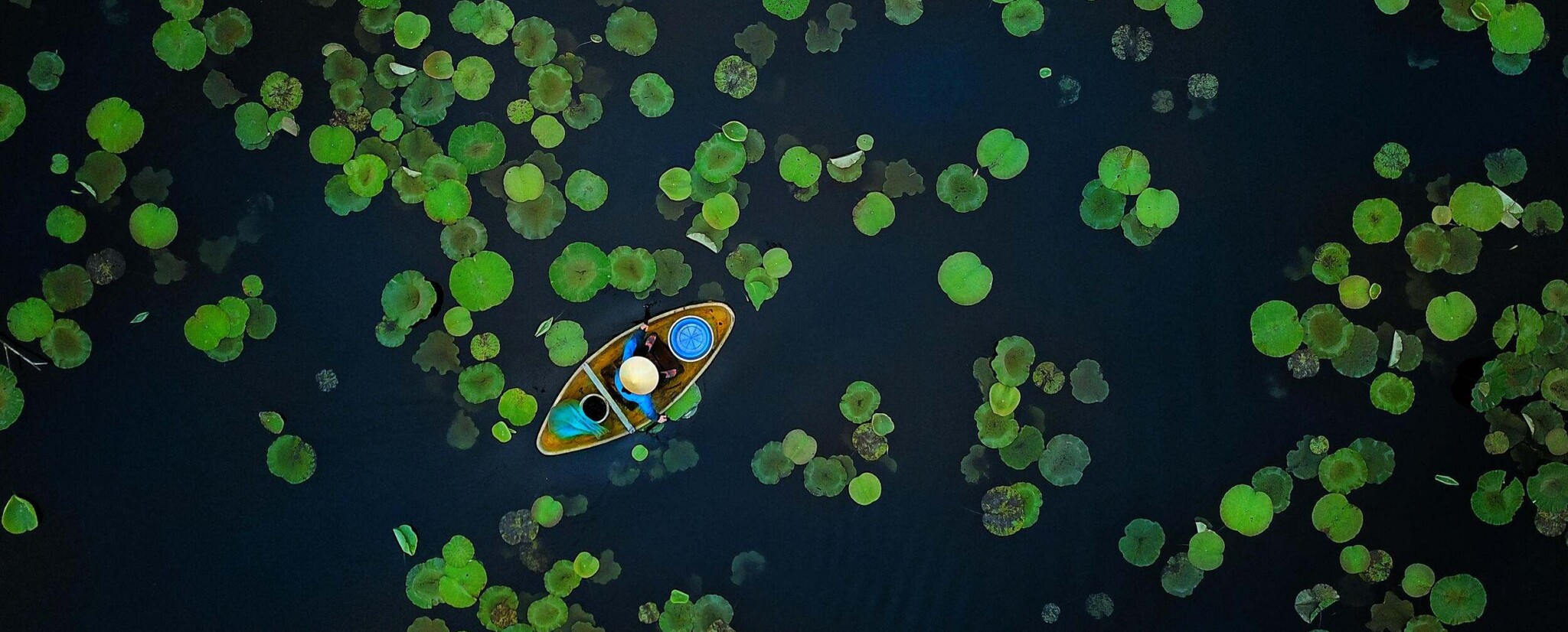
Summer on the lotus pond in Phu Tho Province (Vietnam). Copyright © Manh Cuong Vu/TNC Photo Contest 2021
Read more
Related articles for further reading
FEATURED NEWS
Colombia deforestation fell to 23-year low in 2023
Reuters, Oliver Griffin, 8 July
Reuters reports Colombia’s Environment Ministry announced deforestation in the country fell 36% to a 23-year low in 2023, driven by declining environmental destruction in the Amazon region. Despite the strong performance in cutting deforestation in 2023, there are signs that deforestation may increase in 2024 amid dry conditions exacerbated by a strong El Nino weather phenomenon.
World’s Top Verifier of CO2 Claims Suffers New Credibility Blow
Bloomberg, Alastair Marsh, 5 July
Bloomberg covers the impacts of a letter from the Science Based Targets initiative’s (SBTi) Technical Council that stated the move by the Board of the organization to claim carbon credits would be allowed for offsetting Scope 3 emissions. The letter from the Technical Council stated this move by the board might “be a breach of the approved SBTi procedures”. Quantum Commodity Intelligence reports that the Peoples Forests Partnership urged the SBTi’s Board of Trustees to allow companies with voluntary climate targets to address part of their Scope 3 emissions with carbon credits and to include communities of forest peoples to be included in conversations around carbon markets. Carbon Exposure Project interviews Patrick Greenfield of The Guardian to discuss his work scrutinizing the voluntary carbon market.
Battle of the bogs: Farmers and EU face off over Ireland’s largest carbon store
Grist, Dawn Attride, 8 July
Grist covers the efforts of conservationists to protect Ireland’s bogs, the nation’s largest natural carbon store and one of the most effective carbon sinks on Earth. Attempts to preserve these bogs have collided with the culture and very real need of many rural Irish residents to continue collecting bog soil to heat their homes through the winter.
Wildfire smoke linked to thousands of premature deaths every year in California alone
The Conversation, Rachel Connolly and Michael Jerrett, 8 July
The Conversation shares a new study that finds wildfire smoke likely contributed to more than 52,000 premature deaths across California alone from 2008 to 2018, with an economic impact from the deaths of more than US$430 billion. As wildfires grow around the world, often near heavily populated areas, the costs to human health and the global economy are set to increase.
EU resists calls to delay deforestation law, letter shows
Reuters, Kate Abnett, 5 July
Reuters shares insights from a new letter it has seen stating the European Union will resist calls from some industries and countries to delay its flagship policy to fight deforestation. The US and other governments and industry groups including the Confederation of European Paper Industries (CEPI) want the policy delayed, citing complaints including that the EU’s systems for managing the ban are not yet finished.
SPOTLIGHT – Indonesia and US Debt-for-Nature Swap
The United States, Indonesia, and leading environmental non-governmental organizations (NGOs) signed a groundbreaking debt-for-nature swap on July 3 to protect Indonesia’s precious coral reef ecosystems by redirecting $35 million of Indonesia’s debt into an investment in coral reef conservation. The signatories to the agreements under this initiative include the US, the Indonesia Ministry of Marine Affairs and Fisheries, the Indonesia Ministry of Finance, Yayasan Konservasi Alam Nusantara (YKAN), Yayasan Konservasi Cakrawala Indonesia (YKCI), Conservation International Foundation, and The Nature Conservancy.
FOR YOUR INFORMATION
Birdlife covers a study finding that nearly 200,000 seabirds die annually as bycatch in European waters – including 150,000 in EU waters.
Fauna & Flora carries an opinion piece from broadcaster Liz Bonnin arguing that Hurricane Beryl should incentivize faster action to combat climate change.
IFAW highlights a new report finding that Latin America is both a consistent source of shark fin products for Asian markets and the main consumer of shark meat exported from Asian trade hubs.
IFAW raises concern over the European Commission’s announcement for evaluation of the EU Seal Trade Regulation.
UNEP announces an agreement with the Ministry of Environment and Climate Change of Brazil to renew and increase collaboration on climate change, nature and biodiversity loss, and waste and pollution.
Climate Champions release a progress report on action from the finance sector to halt and reverse deforestation.
Transition Finance shares its complete report on developing a new paradigm for carbon markets as a way to finance global transitions.
IETA publishes a report on the importance of funding natural climate solutions.
The Society for Marine Mammalogy calls for conservation grant proposals to support research and education projects that will catalyze real action to protect the world’s most endangered marine mammals.
NCS IN THE REAL WORLD – Chocó-Darién Conservation Corridor REDD+
N4C is compiling an index of NBS case studies, together with an interactive map, to highlight action on the ground. Each week, we will be choosing a case study to present, to help give concrete examples of work being done to bring NBS theory into practic.
WHERE: ACANDÍ, COLOMBIA
TYPE OF NCS SOLUTION: PROTECT
This is the first REDD+ project in the world to issue forest carbon certificates in a collectively and communally owned territory. Carbon finance funds 14 activities designed to reduce deforestation by improving governance capacity, enforcement, and management.
Colombia has the opportunity to sequester 7.6 MtCO2e/yr by 2050 if it meets its potential for avoided forest conversion.
See more details on the potential for natural climate solutions on N4C’s naturebase platform and find examples of real projects using the N4C case study map.
GOOD NEWS
French Polynesians revive traditional rāhui to protect fish — and livelihoods
Confronted with a decline in fish stocks, communities across French Polynesia are reviving a traditional method of managing natural resources called rāhui. This bottom-up solution, managed by local communities with help from scientists and the government, although imperfect, appears to demonstrate some degree of effectiveness.
